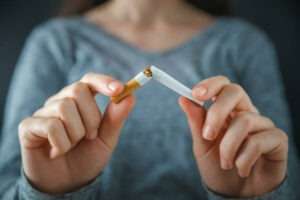Erectile Dysfunction (ED), a concern affecting millions worldwide, is prevalent in the UK too. It’s not a disease but a symptom of an underlying cause. A variety of factors can influence ED, even in healthy males with no medical conditions. Lifestyle elements such as stress, diet, exercise, sleep, and mental health can all contribute to ED. While medications are available to treat ED, it’s worth exploring natural ways to improve this condition without additional supplements or medication. As an online pharmacy based in London, Surrey, we’re committed to providing holistic health advice. Stay tuned for more insights on managing and improving ED naturally. Remember, a healthy lifestyle is often the best defence against ED.
Please note: This information is intended for general informational purposes only and does not constitute professional medical advice. Always seek the advice of your doctor or other qualified health provider with any questions you may have regarding a medical condition.
Obesity
Obesity, a significant contributor to ED, can cause long-term damage to blood vessels, impeding blood flow throughout the body. This is crucial for achieving an erection, as restricted blood flow to the penis makes maintaining an erection challenging.
Symptoms often begin with occasional difficulties in reaching and maintaining an erection. Over time, the strength of the erection diminishes, and men may eventually lose the ability to obtain an erection altogether.
Weight loss, a recommended solution, can be achieved through various methods. The primary principle is ensuring that the energy burned by your body exceeds the energy consumed. Numerous apps can assist with calorie counting and exercise tracking. Remember, weight loss is not just a physical challenge, but a mental one as well. Losing weight can also boost self-confidence, improve self-image, and enhance relationships.
Obesity may increase the risk of ED by 30-90% compared to individuals of average weight. Pharmacy Advance understands the importance of maintaining a healthy weight for for overall wellbeing and sexual health.
Diet
An unhealthy diet, particularly one high in processed foods and saturated fats, can increase the risk of numerous health conditions, including obesity. Obesity, in turn, can exacerbate ED. An unhealthy diet can elevate cholesterol levels, which can damage blood vessels and impede blood flow to the penis, making it harder to achieve and maintain an erection.
Alcohol also has a detrimental effect on ED. Chronic alcohol consumption can lead to liver damage, which can cause hormonal imbalances that affect erectile function. Similar to obesity, alcohol can cause cardiovascular problems and affect the efficiency of blood vessels in transporting blood to various parts of the body. Alcohol, being a depressant, can damage the autonomic nerves responsible for involuntary actions, including those leading to an erection. This nerve damage can result in a failure to initiate the physical process of an erection. Excessive alcohol can also contribute to psychological issues such as stress, anxiety, and depression, all of which can contribute to ED. If you’re a long-term drinker, it’s crucial to consult your GP before quitting alcohol.
Smoking

Smoking is a significant risk factor for ED, with research indicating a strong dose-dependent association. The toxins in cigarette smoke, including nicotine, carbon monoxide, and other oxidant chemicals, can cause endothelial damage. This damage impairs the vascular system, which is crucial for maintaining erectile function.
Quitting smoking can reverse these harmful effects and improve ED symptoms. This highlights the importance of smoking cessation as a key lifestyle change for individuals experiencing ED. It’s not just about improving overall health, but also about reclaiming sexual health and confidence.
Effective strategies for both smoking cessation and ED treatment include nicotine replacement therapy, behavioural counselling, and education. These programs provide a holistic approach to health improvement, addressing both the physical and psychological aspects of ED.
Stress
Stress triggers the release of adrenaline and cortisol in the body, part of your body’s fight or flight response. These hormones are beneficial when reacting to immediate threats, but long-term exposure can lead to negative effects such as high blood pressure, heart disease, and ED.
The psychological effects of stress, including anxiety and depression, can also contribute to ED. Anxiety can raise heart rates and increase blood pressure, leading to erection difficulties. Moreover, the stress of ED itself can create a vicious cycle, exacerbating the condition.
Stress can strain relationships, leading to decreased sexual desire and intimacy issues, which can further contribute to ED.
There are several ways to manage your stress. Regular exercise and a healthy diet can boost your energy levels and release endorphins in your brain, improving your mood. A good night’s sleep, ensuring 7 – 9 hours of uninterrupted rest each night, can significantly reduce stress levels. Engaging in hobbies or activities you enjoy can act as a distraction and help you relax.
If stress becomes overwhelming, consider seeking professional help. Therapists can teach effective coping mechanisms for stress management.
Bicycle Riding
Bike riding is a popular activity, yet concerns have been raised about its potential link to ED. Studies suggest that cyclists may have a higher risk of ED compared to non-cyclists.
The belief is that cycling can cause perineal compression, leading to vascular endothelial and neurogenic dysfunction, which can contribute to the development of ED. Therefore, it’s crucial for cyclists to ensure proper bike fitting and seat design to minimise the risk of ED.
If possible, cyclists should consider limiting their cycling time to 3 hours a week. This reduction can help mitigate the potential risk of ED associated with prolonged cycling.

It’s clear that managing ED extends beyond medical treatments and delves into a realm of comprehensive lifestyle adjustments.
Sources:


